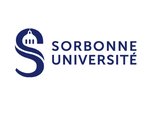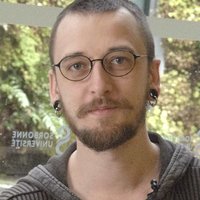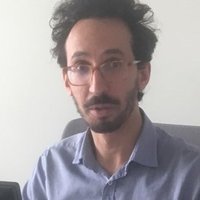Open Science
- Duration: 4 weeks
- Effort: 8 hours
- Pace: Self paced
- Languages: English and french
What you will learn
At the end of this course, you will be able to:
- Understand in details the principles and challenges of open science
- Use a set of methods and tools to open your research
- Foresee the evolution of research practices and regulations
- Feed your reflection on scientific research, your PhD and the links between science and society
Description
A free and open access to research data and scientific litterature, transparent peer reviewing, citizen science... The open science movement is wide, diverse and aims to radically transform the way scientific knowledge is produced and shared.
This MOOC will allow you to learn at your own pace about the main challenges in opening scientific research and how to change your own practice. Through contributions from 38 participants: researchers, PhD students, librarians and more, and from experimental sciences to humanities, this MOOC will show you multiple approaches and perspectives, each with their own specificities.
Format
The course is made of 6 thematic modules that can be taken in any order. Completing the course will require on average 8 hours of work. However, depending on your own interests and availability, you can choose to follow only the essential parts of the MOOC (around 5 hours), or go more in depth by adding the optional course materials (up to 10 hours of effort total).
The MOOC is bilingual french/english. While most of the audio is only available in french, english transcripts and subtitles are provided for all videos. All texts are also translated in english.
The course is made of 6 thematic modules that can be taken in any order. Completing the course will require on average 8 hours of work. However, depending on your own interests and availability, you can choose to follow only the essential parts of the MOOC (around 5 hours), or go more in depth by adding the optional course materials (up to 10 hours of effort total).
The MOOC is bilingual french/english. While most of the audio is only available in french, english transcripts and subtitles are provided for all videos. All texts are also translated in english.
Prerequisites
The MOOC was designed primarily to train PhD students, university librarians and other professionals of information science. Basic knowledge of the circuit of academic publication and production of research data will be helpful but is not required to follow the course. This MOOC is open to all audiences.
Assessment and certification
Quizzes and exercices will be used to test your knowledge and practical skills at the end of several modules. A certificate will be delivered to students who succesfully completed the course and tests.
Course plan
- Welcome to the Open Science MOOC
- Sequence 01: Open Science and its challenges
- Sequence 02: Scope of the MOOC and user guide
- Introduction: Towards open access
- Sequence 01: The current model of academic publication
- Sequence 02: Read, publish and archive in open access
- Sequence 03: Building the future of academic publication
- Quizzes and exercices (PUBLICATION module)
- Introduction: Opening research data
- Sequence 01: Definitions and challenges
- Sequence 02: The legal side of opening data
- Sequence 03: Manage and open your data
- Sequence 04: Challenges and obstacles
- Quizzes and exercices (RESEARCH DATA module)
- Introduction: Research evaluation turned upside down?
- Sequence 01: Peer review
- Sequence 02: Open Science and performance assessment
- Sequence 03: Open Science and scientific integrity
- Quizzes and exercices (EVALUATION module)
- Introduction: Carrying out citizen science projects
- Sequence 01: Definition and challenges
- Sequence 02: Citizen science diversity and project management
- Quizzes and exercices (CITIZEN SCIENCE module)
- Introduction: sciences and society
- Sequence 01: Sciences and society through time
- Sequence 02: Sciences and society in the age of open science
- Introduction
- Single sequence : Staying in academia? Advice for young researchers
Course team
Marion Brunetti
Categories
Sébastien Perrin
Categories
Organizations
License
License for the course content

Attribution
You are free to:
- Share — copy and redistribute the material in any medium or format
- Adapt — remix, transform, and build upon the material for any purpose, even commercially.
Under the following terms:
- Attribution — You must give appropriate credit, provide a link to the license, and indicate if changes were made. You may do so in any reasonable manner, but not in any way that suggests the licensor endorses you or your use.





